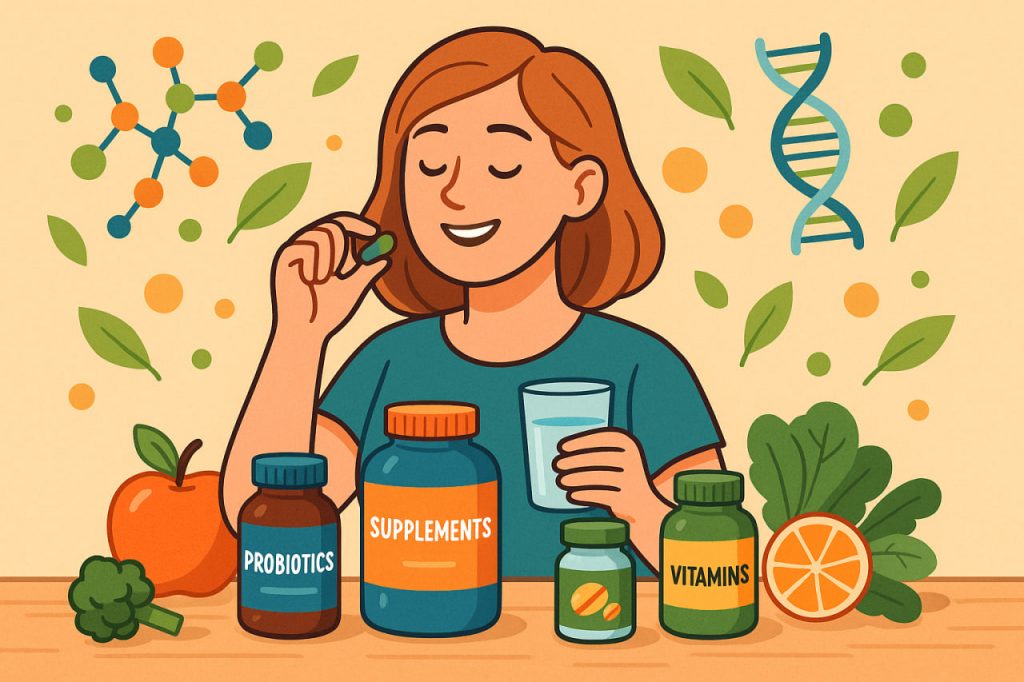Biologically active supplements, often known as dietary supplements or nutraceuticals, have become a global phenomenon in health and wellness. Marketed as natural ways to boost energy, improve immunity, and fill nutritional gaps, they promise a shortcut to better well-being. But what are these supplements really, and how do they work? While many contain beneficial compounds, experts emphasize that they must be used responsibly, with scientific understanding and professional guidance.
What Are Biologically Active Supplements?
Biologically active supplements (BAS) are concentrated sources of nutrients, extracts, or bioactive compounds derived from natural or synthetic sources. They include vitamins, minerals, amino acids, enzymes, herbal extracts, probiotics, and antioxidants. Their purpose is not to treat or cure diseases but to support normal physiological functions. These products are usually available in capsules, powders, or liquid forms. While their accessibility makes them attractive to consumers, their unregulated nature in some markets raises questions about safety and effectiveness.
How They Work in the Body
Supplements interact with the body’s metabolic systems by providing or enhancing biologically active compounds already found in food. For example, vitamin D helps absorb calcium and support bone health, while omega-3 fatty acids contribute to heart and brain function. Probiotics influence the gut microbiome, improving digestion and immunity. However, when taken excessively or combined improperly, supplements can disrupt natural processes, leading to toxicity or nutrient imbalance. Biochemists often stress that the human body prefers nutrients from whole foods, where compounds work synergistically rather than in isolation.
The Potential Benefits
When used correctly and under medical supervision, biologically active supplements can offer tangible benefits. They are especially useful for individuals with increased nutritional needs—such as pregnant women, athletes, vegetarians, and the elderly.
The Risks of Misuse
Despite their popularity, supplements can be harmful when used without professional guidance. Overdosing on fat-soluble vitamins (A, D, E, and K) can lead to toxicity, causing liver damage or hormonal imbalance. Herbal supplements may interact with prescription drugs, reducing their effectiveness or triggering side effects. Some unregulated products have been found to contain contaminants, heavy metals, or undeclared pharmaceutical substances. According to the World Health Organization (WHO), global supplement misuse contributes to thousands of hospitalizations annually. The key is moderation and consultation with healthcare professionals before starting any supplement regimen.
Supplements and the Placebo Effect
Interestingly, many users report feeling better after taking supplements, even when measurable benefits are absent. This may be due to the placebo effect—the psychological improvement that occurs when people believe they are doing something good for their health. Studies show that belief in a product’s effectiveness can influence mood, motivation, and even immune response. Thus, supplements can have both biological and psychological impacts, reinforcing the importance of education and informed choice.
The Future of Biologically Active Supplements
Modern science continues to explore new frontiers in supplement development. Researchers are studying nutrigenomics, the interaction between genes and nutrients, to create personalized supplements based on DNA profiles. Advances in biotechnology also enable the extraction of highly purified compounds from plants and marine organisms. However, experts agree that technological progress must go hand in hand with ethical responsibility, ensuring safety, clinical testing, and truthful advertising.
Expert Advice for Safe Use
Nutritionists recommend the following principles for safe supplement use:
- Consult a doctor or dietitian before starting any supplement.
- Avoid high doses unless medically prescribed.
- Choose certified products with transparent labeling and safety testing.
- Combine supplements with healthy eating, not as replacements.
- Be cautious of “miracle claims”—if it sounds too good to be true, it probably is.
Interesting Facts
- The global supplement market is worth over $180 billion and continues to grow annually.
- More than 60% of adults in developed countries regularly use dietary supplements.
- Vitamin C was the first synthetic supplement ever produced, in the 1930s.
- Some supplements, like turmeric (curcumin), have both culinary and medical uses.
- Excessive use of protein supplements can strain the kidneys and liver over time.
Glossary
- Bioactive Compound – A natural substance that affects biological functions in the body.
- Probiotics – Live microorganisms that promote digestive and immune health.
- Nutraceuticals – Food-derived products with potential health benefits beyond basic nutrition.
- Toxicity – Harmful effects caused by excessive intake of a nutrient or chemical.
- Placebo Effect – Psychological improvement resulting from belief in a treatment rather than its actual efficacy.
- Nutrigenomics – The study of how genes and nutrients interact to influence health.
- Synergy – The combined effect of compounds working together, often stronger than individual effects.
- Fat-Soluble Vitamins – Vitamins (A, D, E, K) stored in body fat, which can accumulate to toxic levels if overused.
- Prebiotics – Fibers that nourish beneficial gut bacteria.
- Regulation – Government oversight ensuring product safety, labeling accuracy, and ethical marketing.


